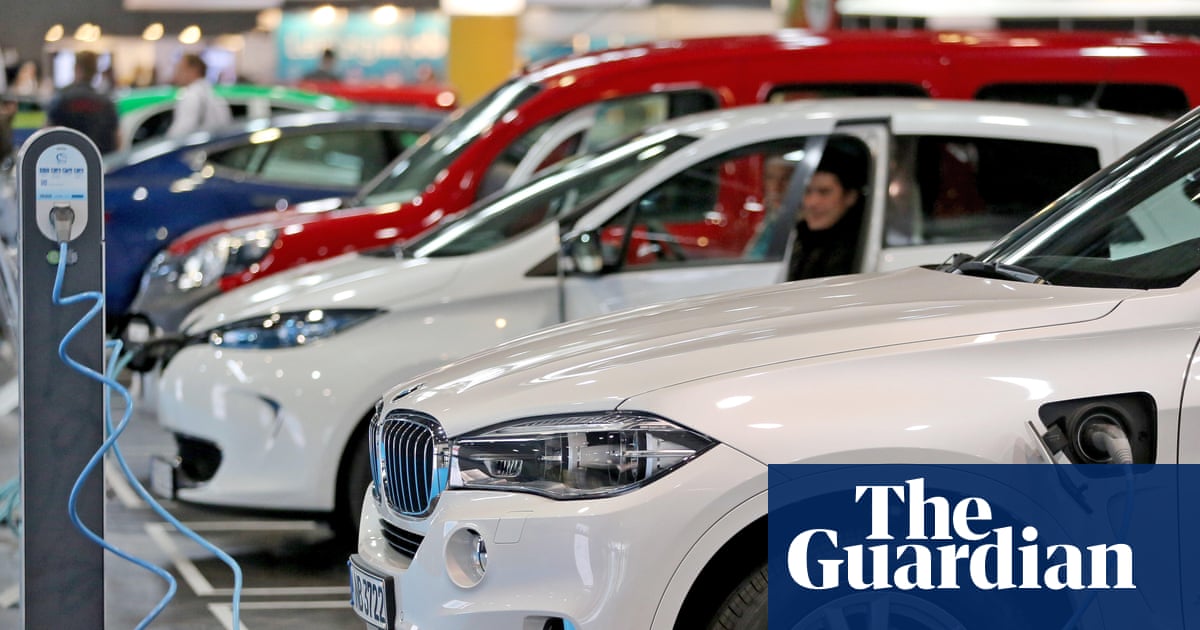Data shows PHEVs emit just 19% less CO2 than petrol and diesel cars, an analysis by the non-profit advocacy group Transport and Environment found on Thursday. Under laboratory tests, they were assumed to be 75% less polluting.
It depends entirely on who bought the car and who uses it.
I met someone who was told to use the company car (a plug-in hybrid) for all trips. Nothing was explained to them, they were just given a company fuel card.
They had not charged the car in the 6 months they had been using it, and didn’t even know that it could be charged. They assumed it was just a more efficient petrol car.Another person I know bought a plug-in hybrid for around town trips with occasional long distance trips. They charge it every day, sometimes more than once a day.
The first case would use more fuel than a mild hybrid due to the extra heavy battery, and would have no benefit over a mild hybrid.
They second case would be almost as good as an EV, with a flight penalty for carrying the weight of the engine.Unfortunately, I suspect the first case is by far the most common for plug-in hybrids.
Still less polluting than petrol and diesel, so that’s good. They also don’t exhaust fine dust as much, which helps health.
That said, the ideal would be an approach of STOP priority in designing roads and cities:
- Strollers (pedestrians)
- Twowheelers (bicycles)
- Open transit (public; buses, trains, trams…)
- Pickups (cars, lorries, etc.)
Can you elaborate on the don’t exhaust fine dust part? The combustion engine part of the hybrid will still have those particulates?
Hybrids use regenerative braking for the majority of their deceleration. There are Priuses (Priui?) with 200K+ kilometres on original brakes. The dust that brake pads shed is fairly harmful, so it’s nice that they produce less.
EVs still have fine dust, due to tyres wearing down.
It’s a lot less than ICE emissions, but yeah, still not nothing…
Less than ice emissions, but far from a negligible amount.
Yes, but as they’re hybrid and will use the green method before switching over to combustion, that will still be less, I think.
Interesting that they don’t link to the source.
It’s linked in the first paragraph.
https://www.transportenvironment.org/articles/smoke-screen-the-growing-phev-emissions-scandal
I see.
That reads like AI slop tbh.
Interesting that you don’t link to the source not linked in the article
In my experience they’re about 75% to 37.5% less polluting. It’s a bit of an oversimplification though, as they’re 100% less polluting for short trips… so it varies wildly depending on how they’re driven.
I got 2l/100km on average when I lived in a flat area close to the city center, and 5l/100km when I had one while living in a suburb 20km away from the city center, vs 8l/100km if I had got the petrol only version of the same car(the car it replaced averaged 10l/100km though, and was 15 years old)
I think the main issue is there’s some tax incentives to buy a PHEV in Europe but not as much incentive to actually recharge it at home or at work, which results in a lot of people not making enough use of the battery if they just bought it for tax purposes and don’t bother to charge it much.
Also most older model PHEVs have a much too small capacity battery: the one I had, had an 8kwh battery, but if I had a newer one with a ~20kwh my fuel consumption living further from the city would’ve remained around 2l/100km.
Also with better charging infrastructure, if you can charge at your destination that increases the EV only distance a lot, but there needs to be slow chargers available in basically every carpark and people actually using them to be able to see the benefit them population wide.
TL:DR: skill issue 😅
I suppose another factor could be that the sorts of people who choose hybrids over EVs are the ones with range anxiety because they drive longer trips more often.
Even if every trips a short trip, they still polpute while being made
Everything pollutes while being made. Ford F150s don’t grow in fields.
Yes. But that only adds to the point of the post, that NO cars, not hybrid, not electric, will solve anything. We have to pivot to other modes of transportation.
One of the many reasons why the most important thing to build is bike and public transit infrastructure. Car dependency is horrifying.
True , but only noise and microplastics 😅(which is not what the article is about)
While being made, as in, during production. It gives a dangerously false picture to only consider a car’s emission during drives with how shockingly much its production emits, pollutes etc.
We have a plugin hybrid, in our life it operates as a purely electric car 90% of the time powered on solar. For the 10% of the time we’re taking it on a longer trip, I’m fine with that 20% less.
Yeah, their real world usage has a huge variance. My parents had one for like a decade and almost never filled it with gas, almost only drove it as an EV. But when they bought it, the previous owner had apparently used it as a pure petrol car … and the petrol engine had terrible efficiency.
Fun fact: the Gen 2 Prius in Europe can drive for several miles on just the battery, but that option was removed in the US, because Toyota knew the battery wouldn’t last the federally required warranty period without too many of them going bad.
And now follow the excuses of hybrid-owners.
That’s why I just got a purely electric vehicle, much simpler mechanically as well.




